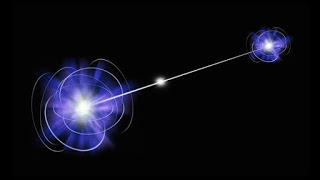Summary:
Proof at the nexus of pure mathematics and algorithms puts ‘quantum weirdness’ on a whole new level. I'm not sure if they will ever fully work out what the universe is, and perhaps it will always be a mystery to some degree. It probably has infinite complexity, like a fractal, and you can go on learning about it forever, and all the while it's getting spookier. In a 1976 paper3, using the language of operators, Connes asked whether quantum systems with infinitely many measurable variables could be approximated by simpler systems that have a finite number. But the paper by Vidick and collaborators shows that the answer is no: there are, in principle, quantum systems that cannot be approximated by ‘finite’ ones. According to work by physicist Boris Tsirelson4, who
Topics:
Mike Norman considers the following as important:
This could be interesting, too:
Proof at the nexus of pure mathematics and algorithms puts ‘quantum weirdness’ on a whole new level. I'm not sure if they will ever fully work out what the universe is, and perhaps it will always be a mystery to some degree. It probably has infinite complexity, like a fractal, and you can go on learning about it forever, and all the while it's getting spookier. In a 1976 paper3, using the language of operators, Connes asked whether quantum systems with infinitely many measurable variables could be approximated by simpler systems that have a finite number. But the paper by Vidick and collaborators shows that the answer is no: there are, in principle, quantum systems that cannot be approximated by ‘finite’ ones. According to work by physicist Boris Tsirelson4, who
Topics:
Mike Norman considers the following as important:
This could be interesting, too:
Robert Vienneau writes Austrian Capital Theory And Triple-Switching In The Corn-Tractor Model
Mike Norman writes The Accursed Tariffs — NeilW
Mike Norman writes IRS has agreed to share migrants’ tax information with ICE
Mike Norman writes Trump’s “Liberation Day”: Another PR Gag, or Global Reorientation Turning Point? — Simplicius
Proof at the nexus of pure mathematics and algorithms puts ‘quantum weirdness’ on a whole new level.
I'm not sure if they will ever fully work out what the universe is, and perhaps it will always be a mystery to some degree. It probably has infinite complexity, like a fractal, and you can go on learning about it forever, and all the while it's getting spookier.
In a 1976 paper3, using the language of operators, Connes asked whether quantum systems with infinitely many measurable variables could be approximated by simpler systems that have a finite number.
But the paper by Vidick and collaborators shows that the answer is no: there are, in principle, quantum systems that cannot be approximated by ‘finite’ ones. According to work by physicist Boris Tsirelson4, who reformulated the problem, this also means that it is impossible to calculate the amount of correlation that two such systems can display across space when entangled.
Nature

